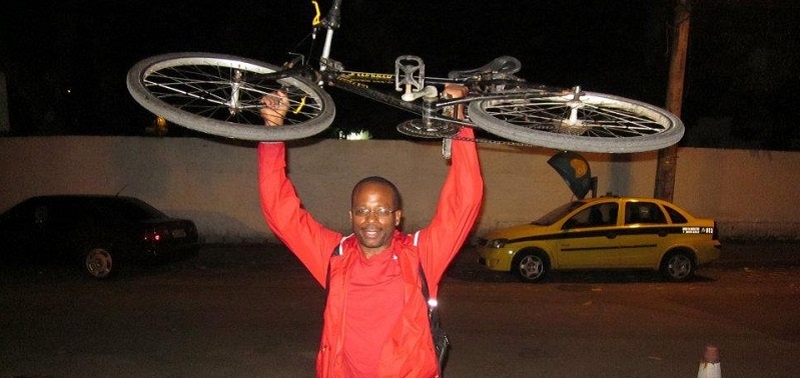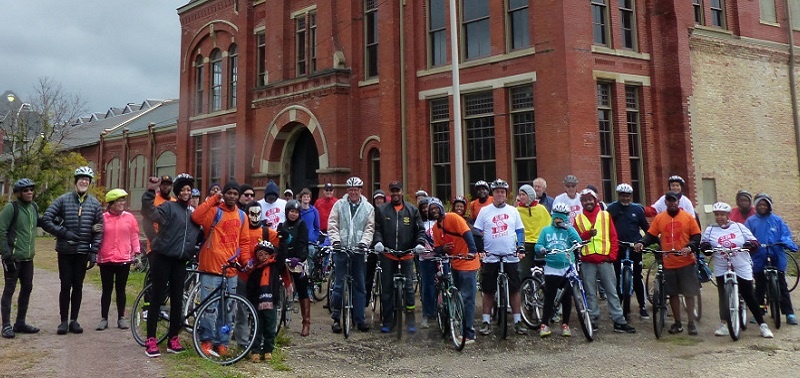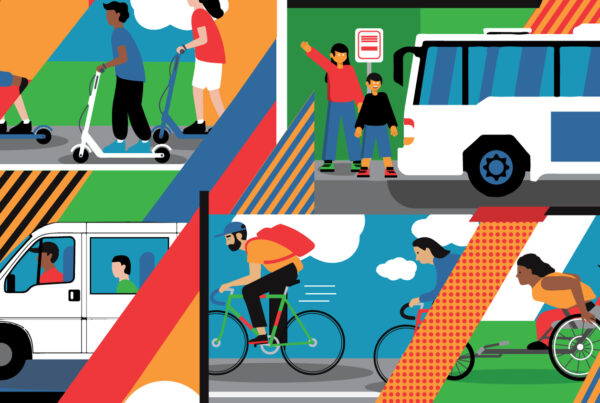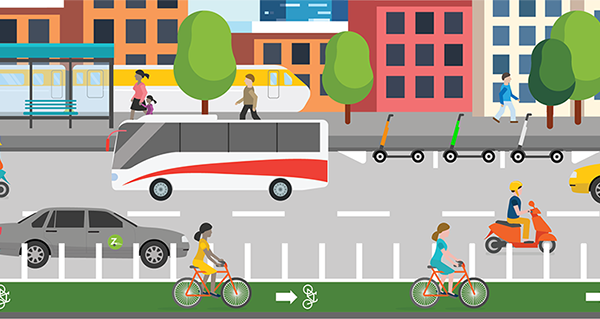Oboi Reed, Co-Founder and President
Slow Roll Chicago
Bike activist Oboi Reed is working to build a diverse and equitable bicycle culture in Chicago. Slow Roll Chicago, which Reed co-founded in 2014, recently established a partnership with Chicago’s Divvy bikeshare system to conduct outreach, education and engagement in communities on the city’s south and west sides as part of a $75,000 grant from the Better Bike Share Partnership.
Reed is also exploring the idea of launching a community-based bikesharing model in neighborhoods that lack access to bike resources and infrastructure.
The following is a lightly edited version of the Shared-Use Mobility Center’s conversation with Oboi Reed. In each issue of SUMC’s newsletter, we will profile a different shared mobility innovator.
What is Slow Roll Chicago?
Slow Roll is a global movement that began in Detroit in 2010. Our mission is to connect a diverse group of people and use bikes and the activity of cycling to transform lives and improve communities. We started the Chicago chapter in 2014. Our vision for the city is equal bicycle usage with respect to race, income and geography. We envision bikes as a form of transportation that can also help reduce violence, improve health and create jobs.
How is Slow Roll Chicago working to achieve that vision?
We have a three-fold strategy. One is our signature ride series. We ride every Wednesday night, mostly on the city’s south and west sides. Each ride is community based and hosted in partnership with a community organization or local business. We also advocate for the equitable distribution of bicycle resources and work with young people in a more direct and intense way through our youth and family programs.
What is Slow Roll doing to get people on bikes?
Our target audience is people who don’t ride. So we want to create this very social, fun, interesting, experience that inspires people to participate. We also partner with community organizations and provide loaner bikes, since we recognize one of the barriers for low or moderate income people is that they may not own a bike. We worked with Divvy to provide bikes for the first five rides of 2015 and are exploring more ways to work them more this season. Formal details about our partnership with the City and Divvy through the Better Bike Share Partnership grant will be announced soon and we plan to kick-off the program this summer.
How else do you see Slow Roll Chicago’s work tying into bikesharing?
We understand that Divvy, and bikesharing in general, is a public resource. It’s a form of public transportation. All of Chicago should have access to it regardless of income or race. We fully support Divvy’s efforts to connect with a more diverse ridership and are excited about the system’s expansion. However, we also want to be able to provide bikesharing experience in neighborhoods where Divvy does not have a presence, or have one planned. One of the projects we’re currently exploring is the creation of a community-based bikesharing model focused on meeting the needs of those communities.
What can bikesharing systems to do to better reach residents in these communities?
We don’t believe in a ‘build it and they will come’ strategy. You have to connect with people in an emotional way and make them feel safe. Part of that is making it a culturally relevant experience. I commend the work Philadelphia did in rolling out its Indego bikesharing system. They really took some time to build in an equity and community outreach component. That approach is critical to have a system that everyone feels connected to. We also need to do something to address the financial hurdles associated with bikesharing – both the cost of membership and the requirement of having a credit or debit card to access the system.
One of the biggest barriers is also perception. A lot of people of color think that riding bikes is something that only white people do, or little kids. When I was younger it was cool to ride a bike, but that changed. Riding a bike came to mean you couldn’t afford a car. Part of our work is to change that perception.
Do you have a favorite Slow Roll ride you’ve taken?
Before a ride last November, a young lady came up to me. She was in 8th grade, or maybe a freshman in high school. She asked where we were going and I told her Northerly Island [a man-made peninsula with more than 90 acres of parkland located along Chicago’s lakefront and near downtown and many of the city’s museums]. She said, ‘where’s that?’ I told her it was over by the museum campus. She said, ‘where’s that?’ Right then, I realized this could be a transformative experience for her.
We started on Kedzie and Harrison and rode toward the lake. It was a beautiful day. There were a lot of young people on that ride who hadn’t been to the museum campus, didn’t realize there was a beautiful beach there. And not only did they get experience it for the first time, but they got there on a bike. It was transformative for me, too, because it cemented in my mind why we do this work.
What are your hobbies outside of work?
I love yoga, meditation and spending time with my family. My brother and his wife just had two boys and I can’t wait to get them on bikes. I’m also interested in African Brazilian culture. I studied in Brazil for six months in 2012 and it’s still a place I feel very connected to.




